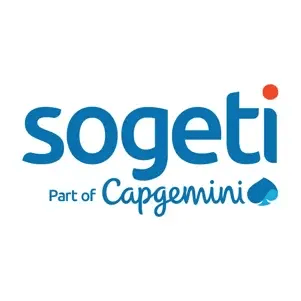
Helping SMEs Recover Outstanding Payments
Professional debt collection without worries
As an SME, you cannot afford to wait too long for your money. The longer you wait, the more difficult it becomes to collect an outstanding debt. Timely payments are crucial to healthy cash flow and the continuity of your business. By following up on overdue payments quickly, you prevent payment problems and maintain your financial stability. A structural accounts receivable management process and an efficient collection process ensure that invoices are paid faster and you avoid unnecessary costs.
Submit your collection files in 4 steps

Submit your claim easily through our digital platform.

After your application, you will receive immediate confirmation of your submission.

Within a short time you will receive access to your personal account so you can track your files.

With our online environment, you have complete insight into the status of your receivables anytime, anywhere.
If you choose debt collection from BVCM, you will enjoy the following benefits:
First contact within 24 hours
After you submit your collection files, we contact the debtor within 24 hours. The faster the contact, the greater the chance of clarity and payment.
Always a fixed contact person
You have an assigned collection specialist who is responsible for your file(s). If desired, you can count on regular contact moments to discuss progress.
Only pay for results
We work on the principle of no cure, no pay debt collection. If BVCM fails to collect the outstanding debt amicably, no fees will be charged.
Focus on your core business
Outsourcing your receivables allows you to focus on your core business. Our experienced professionals strive to maximize results while retaining your client.
Calculating collection costs
The Collection Costs Act (WIK) stipulates how much collection costs you may charge on top of the invoice amount if the debtor is a consumer (natural person). Calculate your collection costs with our collection costs calculator.
As a result of the introduction of the WIK, specific consideration is given to installment payments (monthly) arising from long-term contracts, the individual installment amounts of which are lower than €266.67.
Getting unpaid invoices paid immediately?

References

Catherine Vermeiren
Tyco
From the very first meeting, we were introduced to BVCM's professional approach.
Najim El Akhssassi
Mobilize Financial Services
We have built a great partnership with BVCM during the year for both our Credit Management and Customer Service activities.

Rick Dijkers
PreZero
Traditionally, we worked with one collection company. However, we needed a good benchmark to assess quality and results. We therefore decided to engage a second party, and that became the BVCM.

Etienne Spaarwater
Motrac Linde
The nice thing about BVCM Collections is that they advocate direct contact with the debtor, calling instead of writing.

Peter van Dijk
Kuehne Nagel
After visiting several collection agencies, our preferred choice was the BVCM. From the conversations, it was quickly apparent that we were dealing with a well-organized collection agency that would complement our collection process.

Elvira de Rijk
Brunel
For many years, Brunel has used BVCM's credit management services; Pre-Collection, Collection, Secondment and W&S, to our complete satisfaction. We see BVCM as an extension of our own activities that provides us with solutions in almost all situations.

Marcel van Beek
Volkswagen Pon Financial Services
In addition to being an excellent collection agency with very good results, BVCM has also proven to be a solid partner for us in the areas of credit management, training, and recruitment & selection.

Erik Prins
Capgemini
For the past 4 years, we have been bringing our regular and complex collection files to BVCM. The collection professionals at BVCM do not stay behind their desks, but go to the client.

Joris ten Westenend
Sligro Food Group
Continually asking what our customer needs are, listening carefully and then responding to our needs
Kevin Jonkman
Pontmeyer
Over 6 years ago, PontMeyer made the decision to transfer collection files to BVCM. The reason for choosing BVCM was the flexibility and how BVCM went along with our requirements and wishes.
Erik Prins
Capgemini
We can therefore rightly conclude that BVCM is not a standard collection agency, but a true collection partner! Capgemini Nederland B.V. has been bringing both its regular and complex collection files to BVCM for the past 2 years.

Arie Zwartewaalsloot
Ingram Micro
Flexibility, commitment, drive and thinking along are among the core values why we have chosen and continue to choose BVCM as a partner.

Vincent Nikkels
Fletcher Hotels
We do not see BVCM as a regular collection agency, but as a professional sparring partner and also part of our debtor management.
FAQ
You can submit a collection order online at BVCM through the order form. You can also submit the collection order by email, hereby submit the debtor data and the outstanding invoices. BVCM will confirm the receipt of your collection order and your debtor will be approached the same day, to pay as soon as possible.
If you received a notice from BVCM, we have sent this by order of a creditor. To prevent a legal procedure, we highly recommend you to pay as soon as possible, preferably before the expiration date of the letter. We offer you the ability to pay the demand in several easy, and safe ways.
BVCM works in the amicable collection process based on a No Cure No Pay principle. This means that you do not have to pay any costs for the service if it turns out that in the event of a lack of redress that the claim cannot be collected. We will recover the cost incurred to collect your claim from your debtor through the collection costs.
BVCM offers multiple different payment solutions. Below you can find the available payment possibilities.
Transfer:
You can transfer the outstanding amount (under the reference of your case number) to the bank account of BVCM. Please refer to the payment details below:
IBAN: NL17ABNA0624668517
BIC: ABNANL2A
ATTN: Stichting Derdengelden BVCM B.V.
iDeal:
You can pay BVCM through iDeal in several ways. You can use the iDeal link in the notice you have received or via the iDeal form on our website. In case you prefer receiving an iDeal link by e-mail or text message please call us.
GWK Travelex:
You can pay the open amount in a GWK office either by cash or card. GWK Travelex has 51 offices throughout the Netherlands, mainly located on the bigger train stations and city centers. Find an office near you on: www.gwktravelex.nl.
NOTE: You always have to do payments yourself. We do not withdraw fund from your account.
If you are not in the financial situation to pay the demand at once you can request a payment plan. Instruction on how to request this can be found below.
If you have structural financial problems we advise you to contact a debt counselor. We advise you to visit this website: www.zelfjeschuldenregelen.nl (Dutch). This website provides information about debts, how you can resolve this on your own and organizations that can help and assist you getting out of your debts.
BVCM tries to collect an invoice on your behalf, without any legal proceedings being involved. This process is also called the amicable collection process. BVCM strives to collect all collection files in the amicable process. Should it eventually turn out that a legal procedure is required for the collection of your claim, you are still at the right address at BVCM.
If you are not able to pay the demand at once it is, under strict conditions, possible to make a payment plan. The amount of installments depends on the outstanding amount and your financial situation. Contact BVCM by phone or email to discuss the possibilities, together with you, we will then look for a suitable solution. After an agreement has been reached, we will send you a confirmation of the payment plan by e-mail or post.
NOTE: The terms of payment plan are set up under strict conditions. If BVCM does not receive the payment, then the payment plan will be canceled.
If you want to know what the current outstanding claim is, you can always contact BVCM by phone, e-mail, or post. We kindly ask you to always have your case number ready while contacting our office.
There is a possibility that you have fulfilled your payment whilst the notice has already been sent to you. It is also possible that you only paid a part of the demand. To check if BVCM received your payment, you can get in touch with us.
It is possible that handing over the demand and your payment to our client have crossed each other. If you send a proof of payment, we will investigate what happened to the payment. You can send the proof of payment to BVCM by email.
- Name and address
- Case number
- Reason why you disagree
- Supporting documents to support your claim. E.g., proof of payment, proof of cancellation.
We work for a wide variety of (inter)national clients. Our letters always contain the name of our client.
This is depending on how you have done your payment. Generally speaking, your payment is processed within two working days. However, international transfers might take up more time. If you have doubts about your payment, please contact us.
Private person:
As of the 1st of July 2012, the collection costs are determined by law. The law provides a percentage scale for determining the collection fees. This percentage is based on the principial amount.
Scale of collection fees:
| Principle amount up to €2500 | 15% with a minimum of €40 |
| The next €2 500 | 10% |
| The next €5 000 | 5% |
| The next €190 000 | 1% |
| Everything above | 0.5% with a maximum of € 6.775,00 |
For Business:
For the calculation of the extrajudicial collection costs of companies, the general terms and conditions of the creditor are decisive for the amount of the collection costs. Usually, a percentage of 15% with a minimum of € 75.00 is used. If nothing is laid down in the general terms and conditions about the amount of the collection costs, the collection costs will be calculated in accordance with the Direct Debit Act.
Subpoena
The collection procedure starts with a subpoena. A subpoena is an official legal document in which your debtor (in legal jargon “defendant”) can see what the demand is and when they have to appear in court in front of a judge. The subpoena has to be served on the defendant by a bailiff.
Statement of reply
In the subpoena, a time and date will be recorded (also known as docketed hearing date). The defendant can decide to respond (immediately or request to postpone) to the subpoena before the docketed hearing date. The response from the defendant on the subpoena is called statement of reply. In the statement of reply, the defendant can bring their defense on the claim forward. The defendant can do this verbally during the hearing. If the defendant decides on a verbal defense, then the defense is made official and a procès-verbal will be written, of which the plaintiff receives a transcript.
In practice, a transcript of the statement of reply will be handed in. This is, in essence, a written response from the defendant on a claim as described in the subpoena. A situation can arise that a defendant feels that they also have the right to put down a claim on you. This is called a counterclaim. The judge will make a verdict in one case for both disputes.
Judgment in absentia
If the defendant fails to show up at the hearing or send in a written response, then the judge will issue a judgment in absentia within a certain period. In the judgment in absentia, the judge will assign the claim to the plaintiff. Up until the moment of the judgment in absentia, the defendant has the opportunity to respond to the subpoena. This is called 'to cure a default'. This procedure will then proceed. It is also possible that the defendant will counter the judgment in absentia. The defendant has to send a resistance subpoena to the plaintiff through a bailiff. This subpoena will be recognized as the statement of reply and the procedure will be continued.
Reply to defense/rejoinder/ appearance of the parties
If the defendant has a statement of reply (in other words: they responded verbally or in written form), then the procedure can continue in the following options described below. The judge decides which option is going to be used to continue. Following this decision, the procedure will continue in written form. You, as a plaintiff, can respond to the statement of reply in written form. This is called a 'reply to defense'. After this 'reply to defense' the defendant can decide to respond in written form. This is called a 'rejoinder'. The judge will study these pieces and will make a notification whether it is enough information for the case to come to a verdict or if he is going to send a request to both parties to explain their case. What follows is an 'appearance of parties'. This is a hearing in which both parties have to appear in front of the judge to explain their case further or come to a settlement. If parties come to a settlement, then this is going to be written in a procès-verbal. If the agreements made are not fulfilled by either party, the report will have the same effect (the same weight) as a judgment. When a settlement is not being reached, then the judge will make a verdict. In many cases, this will be the final verdict, but an interlocutory is within the possibilities. In an interlocutory, a judge can, for example, ask for more evidence. After the execution of delivering the evidence, the judge will decide upon the final verdict.
Final verdict
At the end of the procedure, the judge will reach a conclusion. This conclusion will be recorded in the final verdict. The verdict will be sent in writing to both parties, so you don't have to show up in court again.
Appeal
Should one of the parties disagree with the final judgment, then that party can appeal to the council against the decision of the judge. Appealing to the council is only possible if the claim is higher than €1.750. An appeal can only be applied for within three months after the judge made the final verdict. According to the law, the appeal can only be handled by a lawyer.
If the demand is lower than €25.000 you are not required to have a lawyer, you could, therefore, try to do the litigation yourself. However, it is usually advised to hire a specialist for these cases. The legal experts of BVCM are always ready to assist you in getting a positive result in the proceedings.
The answer to that is 'no'. It is a misunderstanding that the winning party can fully put the actual costs of the proceedings to the losing party. In the Netherlands, the winning party is only awarded a part of the litigation costs and can only try to recover that part from the losing party.
The legal costs usually consist of court fees, bailiff's fees and a contribution towards the costs of your jurist (or lawyer). The amount that the judge will allocate depends on the type of case, the number of procedural actions and the court where the case is served. The process costs are determined on the basis of a 'lump sum system'. These amounts are almost always (much) lower than the actual costs you incurred.
Furthermore, it regularly occurs that the court decides that each party must bear its own costs. This is also customary when making settlements.
After the judge has pronounced a final award, the losing party must comply as soon as possible with what has been determined in the judgment. If the losing party does not comply with this, the verdict will be forwarded to the bailiff. The bailiff can ensure that the losing party does what the judge has decided. The bailiff can make use of various means for this, such as seizure of wages and (un)movable property.
The costs of the bailiff are recovered from the defendant as much as possible. Does the defendant have no recourse (so they have no or little income, no valuables, if they are in the debt repayment or have they been declared bankrupt) then the costs of the proceedings and bailiffs are charged to the plaintiff. Even after a final verdict, it can, therefore, unfortunately, take some time before you receive your money.
The judgment has been rendered, but the bailiff has failed to collect the claim because your debtor at that time, for example, has disappeared or has no recourse (cannot pay).
Fortunately, a sentence remains valid 20 years after the date of the judgment. The situation of your debtor can of course change during those years. BVCM, therefore, offers the so-called storage service for this type of business. The case is then monitored and executed at the moment that your debtor reappears, has a job, buys a car, et cetera. This service will give your uncollected case a second chance, and you can be sure that your debtor - for which you have already spent so much money - will be exerted pressure for years to pay.
Would you like more information?
Do not hesitate to contact us without obligation. We will be happy to look with you at the best way to deploy debt collection within your organization.